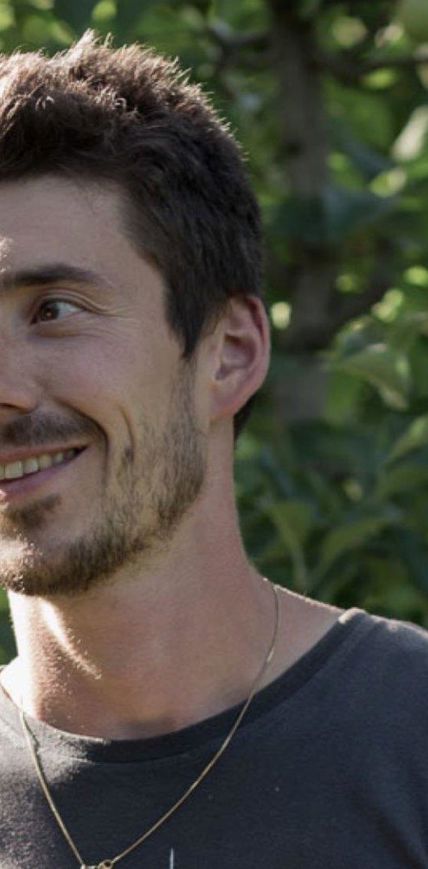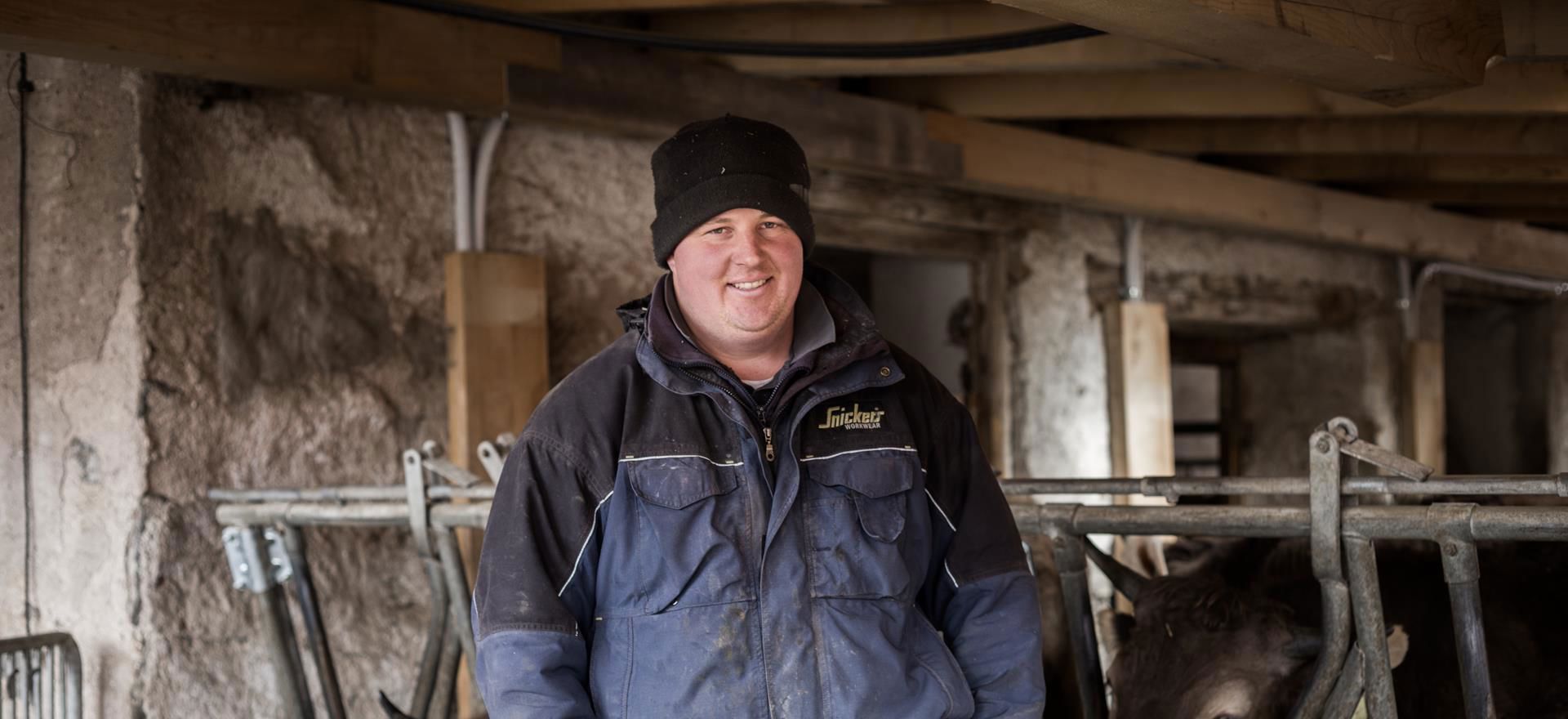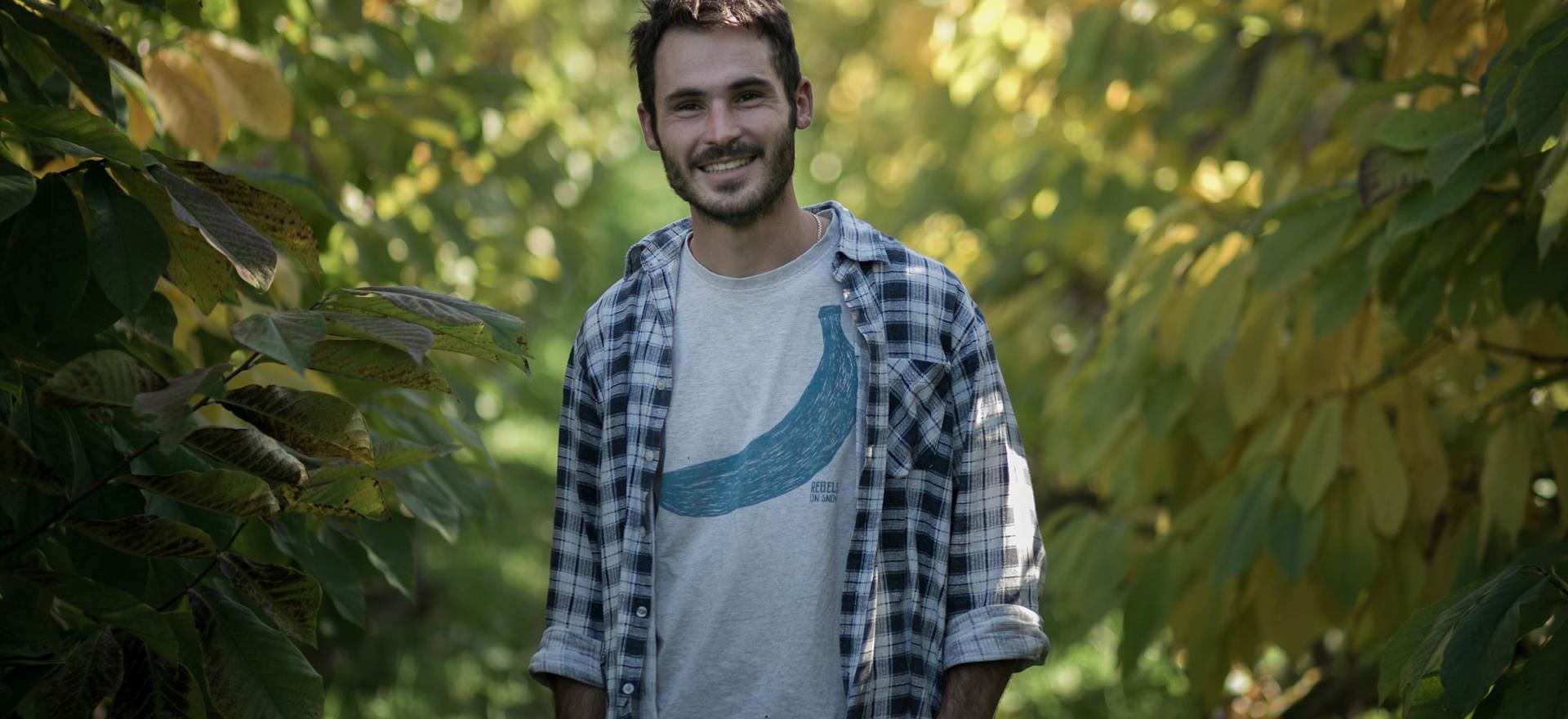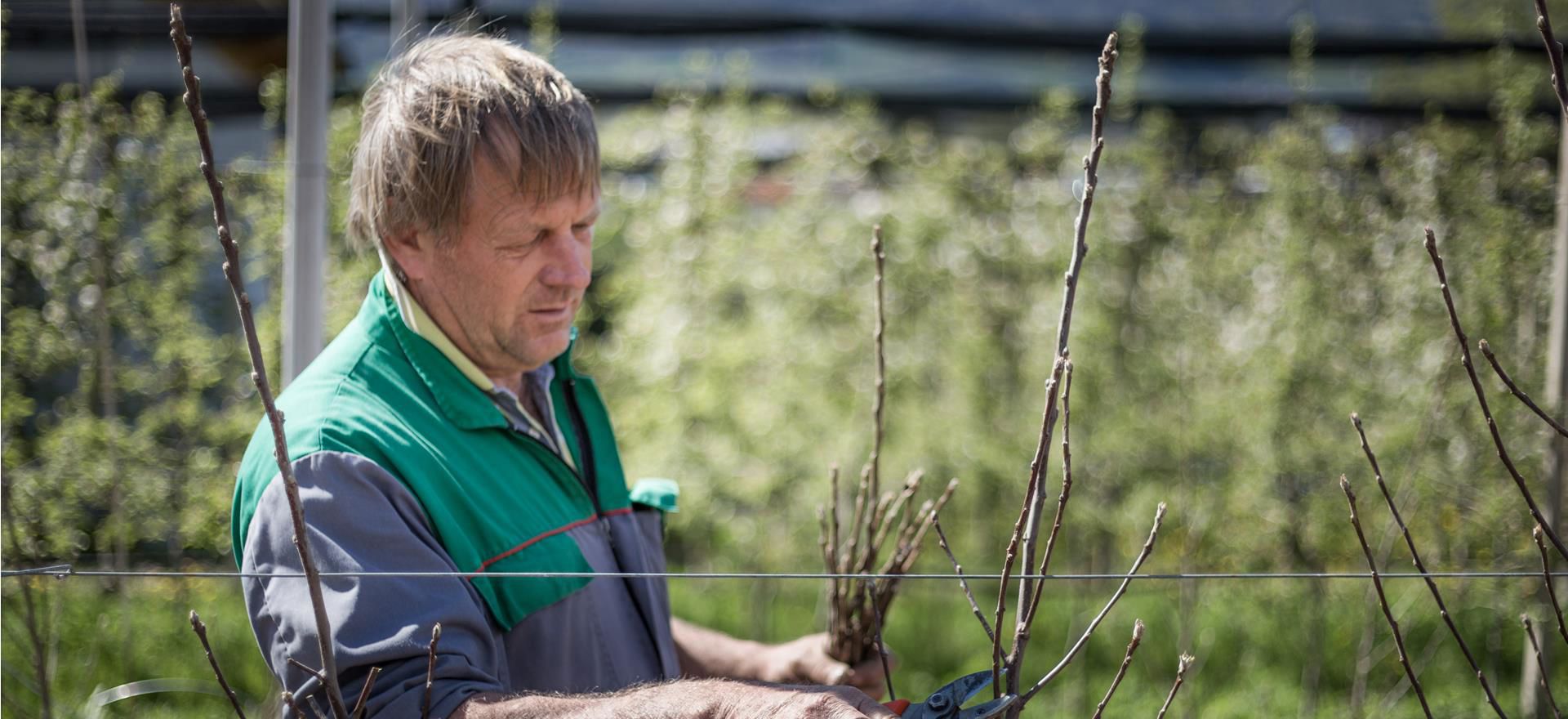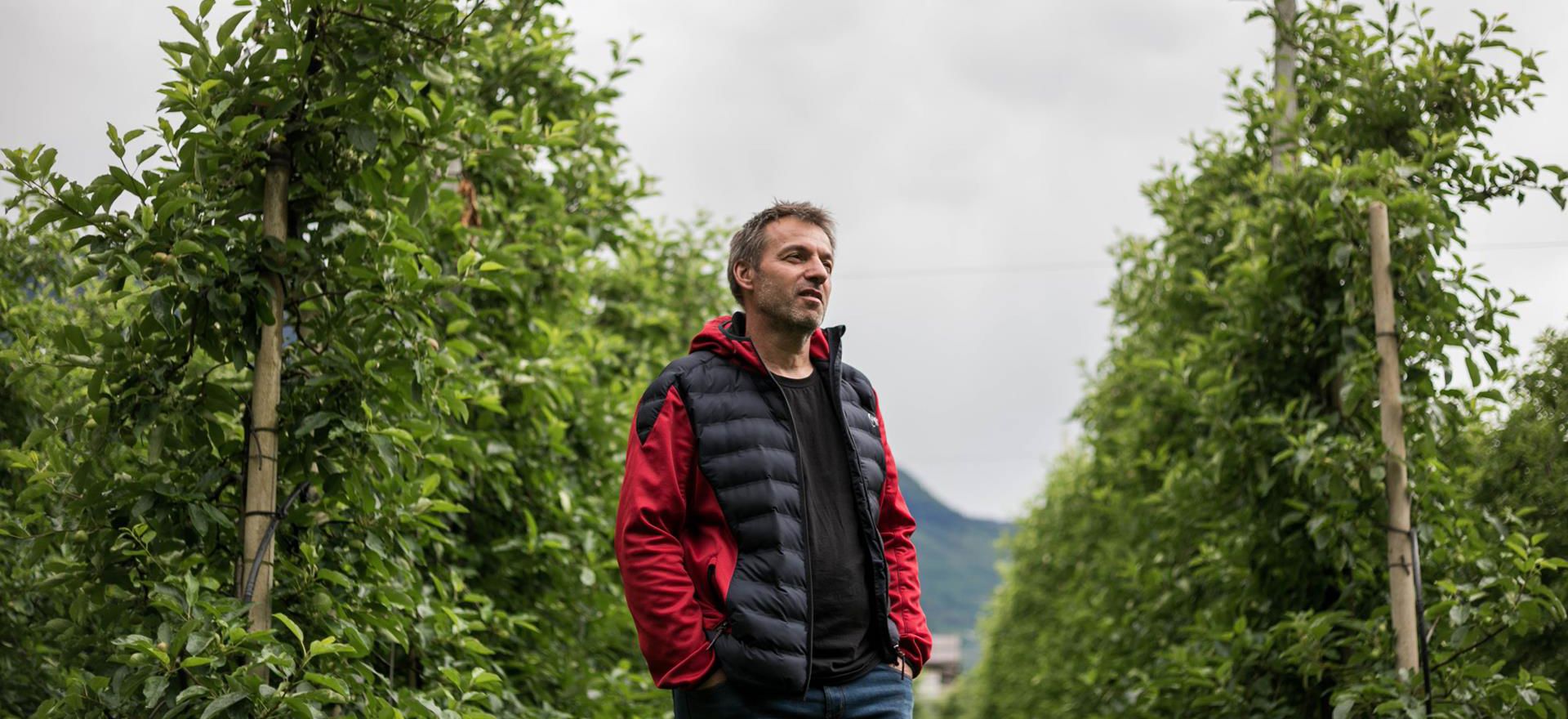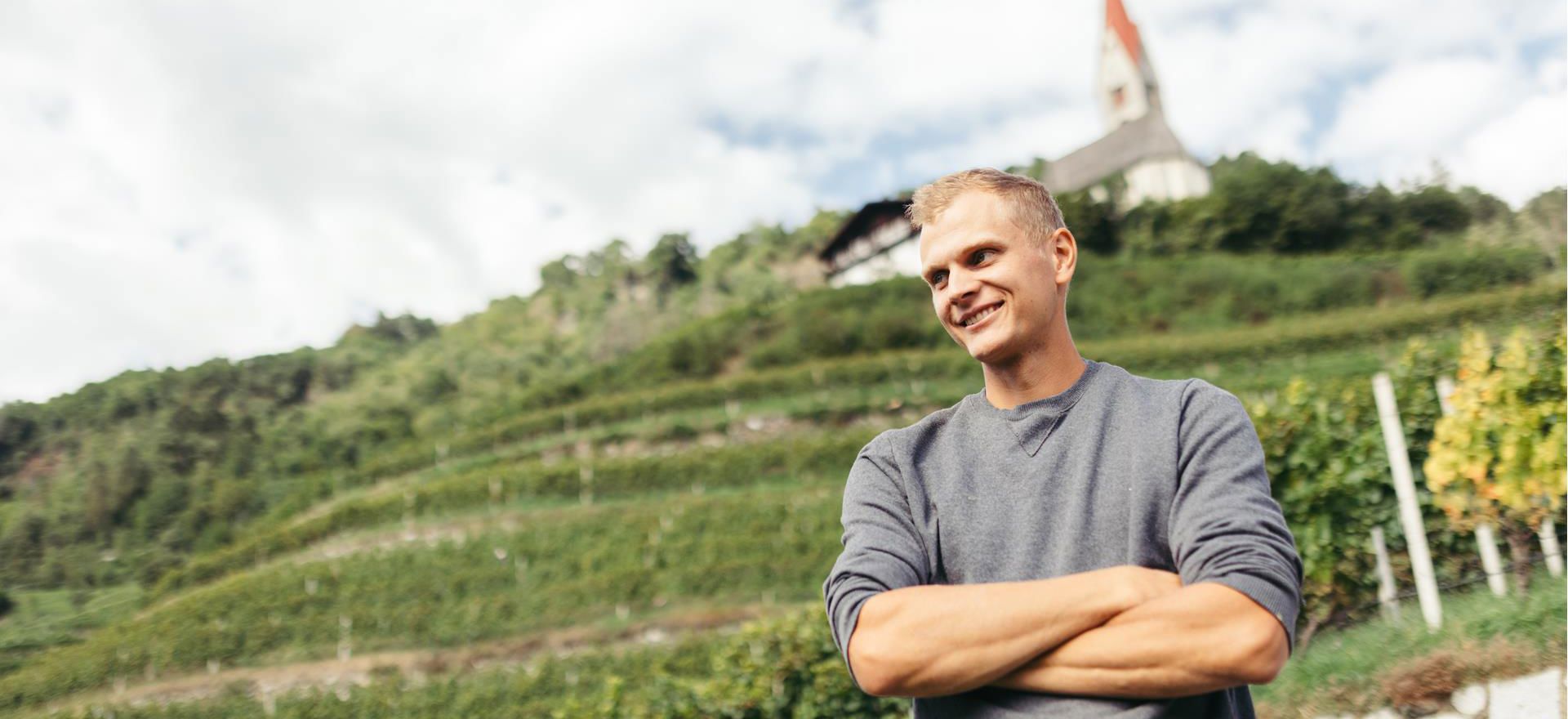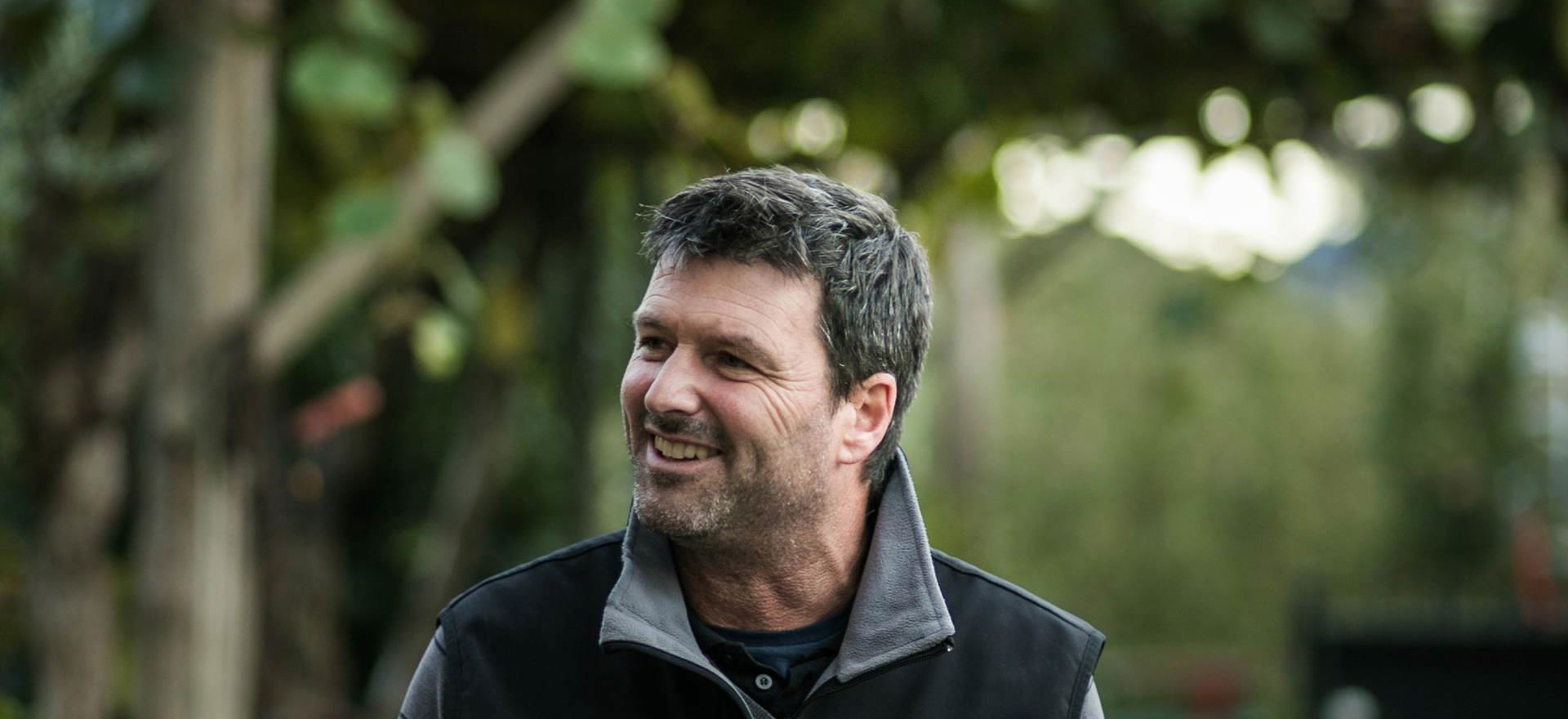In 1990 Thomas’s father switched his apple growing business to organic and in the mid-1990s he planted the first PIWI (fungus resistant) vine.
Rudolf Niedermayr – his family and friends call him Rudi – is ahead of the curve in his field. Hardly surprising, when he is one of the six founders of the cooperative Biosüdtirol. One of the six men who, in a farmhouse parlour in late summer 1990, breathed life into their vision of selling organically grown apples. Six headstrong individuals have now grown to 200 headstrong individuals. The first generation is now handing their farms over to the next generation.
A South Tyrolean idyll. The meadows of the farmstead Gandberg are located in Eppan, right next to the neighbouring forest at the foot of the Mendel mountains. Cool air streams from the “ice holes” in the nearby forest and flows into the farm land, thereby influencing its special micro-climate.
It wasn’t entirely clear who would take over the farm from Rudi, so Thomas spoke with his five siblings ... and changed his life in the process. He resigned from his job and trained at the agricultural college in Laimburg. Until that point he had been working as a joiner in a small business known in a region known for its solid wood furniture. After completing his training, he gained work experience in Austria, working as a consultant for vine pruning, completed an internship in a winery business and thus armed himself for Zero Hour: Thomas took over his parents’ farm and took the baton for another generation.
A South Tyrolean idyll. The meadows of the farmstead Gandberg are located in Eppan, right next to the neighbouring forest at the foot of the Mendel mountains. Cool air streams from the “ice holes” in the nearby forest and flows into the farm land, thereby influencing its special micro-climate.
It wasn’t entirely clear who would take over the farm from Rudi, so Thomas spoke with his five siblings ... and changed his life in the process. He resigned from his job and trained at the agricultural college in Laimburg. Until that point he had been working as a joiner in a small business known in a region known for its solid wood furniture. After completing his training, he gained work experience in Austria, working as a consultant for vine pruning, completed an internship in a winery business and thus armed himself for Zero Hour: Thomas took over his parents’ farm and took the baton for another generation.


